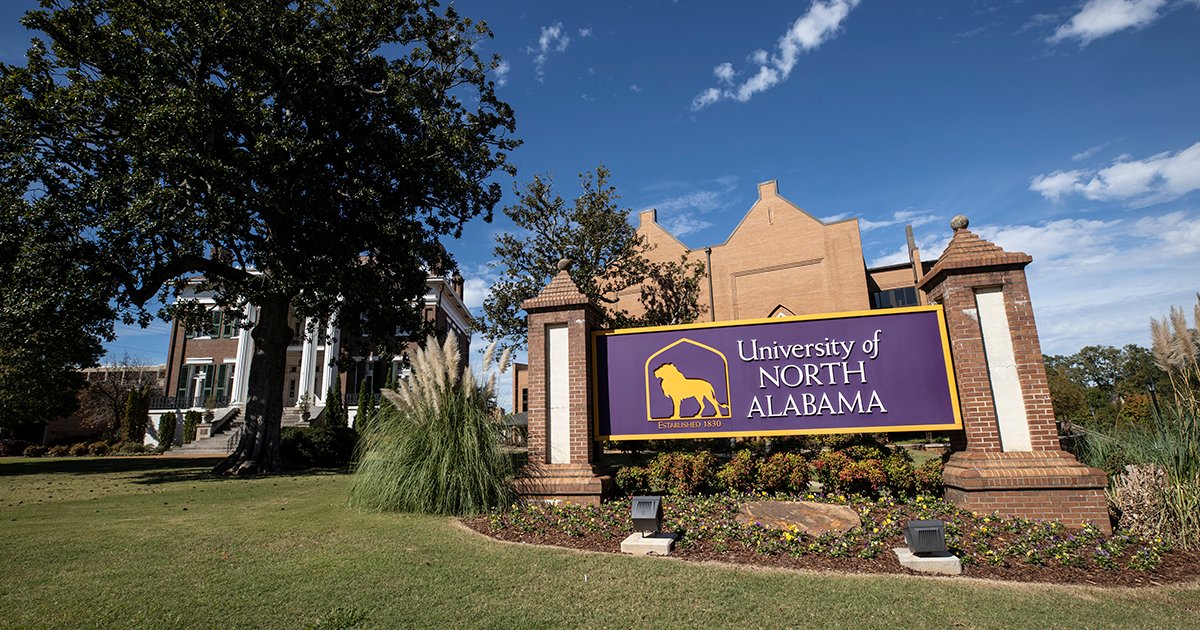
Stem Scholars Program Aims To Support Rural Students To Study Stem Degrees At Una
Oct. 28, 2019
Michelle Eubanks, UNA, at media@una.edu, 256.765.4392 or 256.606.2033
FLORENCE, AL - The University of North Alabama has been awarded a grant from the National Science Foundation S-STEM program that will fund scholarships to academically promising, low-income students from Alabama's rural school districts. Known as STEM Scholars, these students will begin their UNA careers in the fall of 2020.
"The STEM Scholars program will provide scholarship recipients with a tailored yet diverse breadth of academic and co-curricular opportunities to promote retention, graduation, and future success in the STEM workforce," said Dr. Ross Alexander, Vice President for Academic Affairs and Provost.
The collaborative research project is led by UNA faculty and staff, including Dr. Melissa Driskell, an Associate Professor of Geology; Dr. Amber Paulk, a Professor of Sociology and Family Studies; Dr. Carmen Burkhalter, former Dean of the College of Arts and Sciences; Dr. Tanja Blackstone, a Professor of Economics; and Dr. Molly Mathis, Director of the Office of Institutional Research.
Already, the project team has begun scheduling orientation visits with its rural high school partners to share the STEM scholarship opportunity with prospective students and their families.
The $647,613 grant will allow UNA to offer a scholarship award of more than $25,000 across eight semesters. All STEM Scholar recipients will also be offered a well-coordinated blend of academic and co-curricular activities, including cohort class scheduling, faculty mentoring and institutional advising, community engagement activities, career and entrepreneurial opportunities, University support services, and institutional engagement.
Applicants may also be eligible for additional financial support through scholarships available through the UNA Honors College and/or federal Pell Grants. Graduates of the program will support the growing economic and industrial needs of the region as STEM job growth is expected to increase by more than 20 percent in north Alabama by 2026.
In order to be eligible for the STEM Scholars program, students must complete an application to UNA, submit a FAFSA application, and complete a STEM Scholars application packet, which requires applicants to:
-
Be a student enrolled in an Alabama high school that meets the criteria for rural status;
-
Have a grade point average of 3.0 or higher;
-
Demonstrate current year financial need;
-
Submit a letter of recommendation from a high school teacher, mentor, or advisor;
-
Submit a video (three minutes or less) that describes their intended STEM major, why they would like to pursue that particular degree, and their long-term career goals; and
-
Be a United States citizen, national, refugee, or hold permanent resident status.
The STEM Scholars program will begin accepting applications Nov. 1. The deadline for priority
applications is Feb. 1, 2020.
For more about the STEM Scholars program or to complete an application, prospective students
may go to the program website at www.una.edu/stemscholars/scholarship.html. Other questions may be emailed to stemscholars@una.edu.
About The University of North Alabama
The University of North Alabama is an accredited, comprehensive regional state university offering undergraduate and graduate degree programs through the colleges of Arts and Sciences, Business, Education and Human Sciences, and the Anderson College of Nursing and Health Professions. Occupying a 130-acre campus in a residential section of Florence, Alabama, UNA is located within a four-city area that also includes Muscle Shoals, Sheffield, and Tuscumbia. UNA Athletics, a renowned collegiate athletics program with seven (7) Division II National Championships, is now a proud member of the NCAA Division I's ASUN Big South Conference. The University of North Alabama is an equal opportunity institution and does not discriminate in the admission policy on the basis of race, color, sex, religion, disability, age, or national origin. For more: www.una.edu and www.una.edu/unaworks/